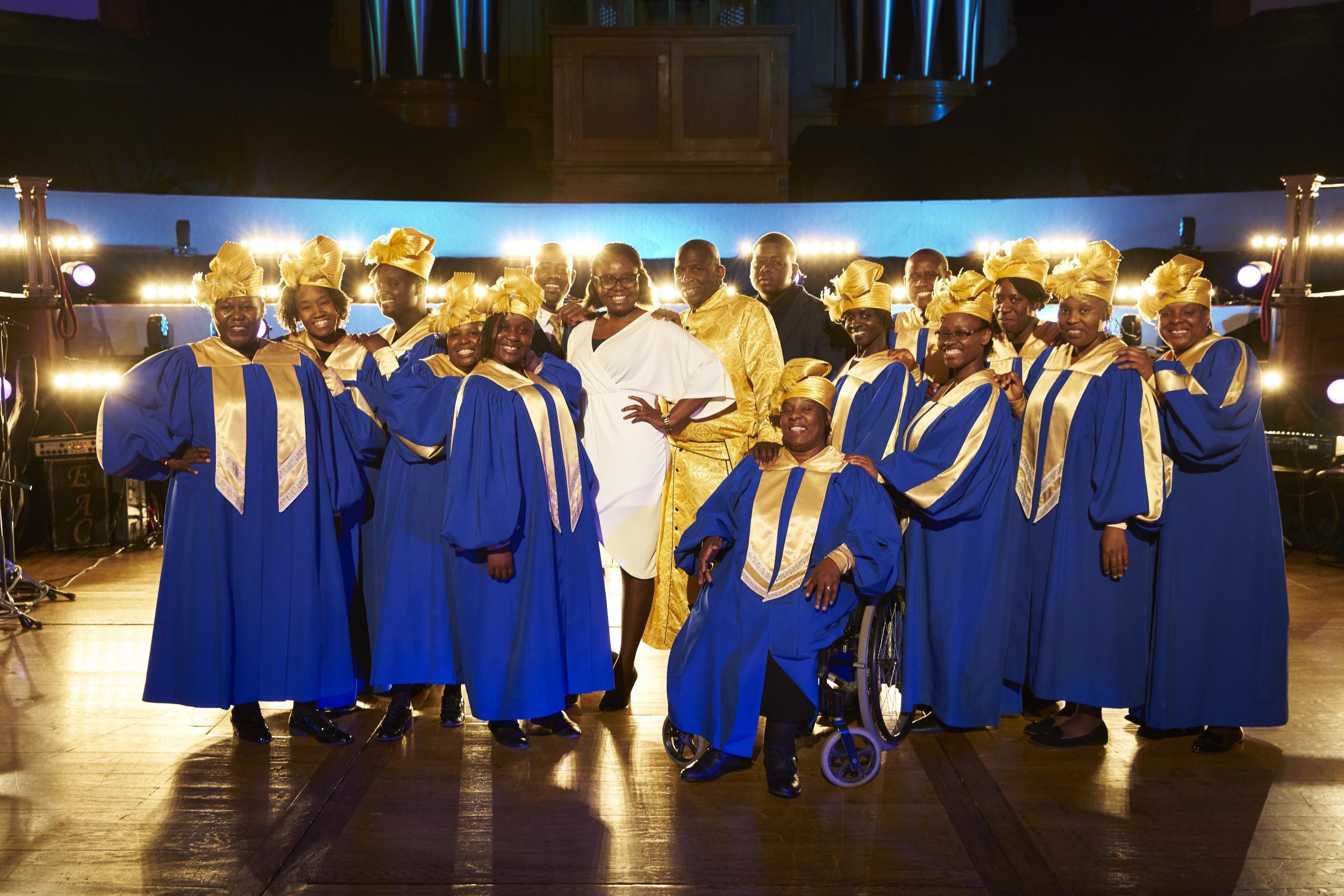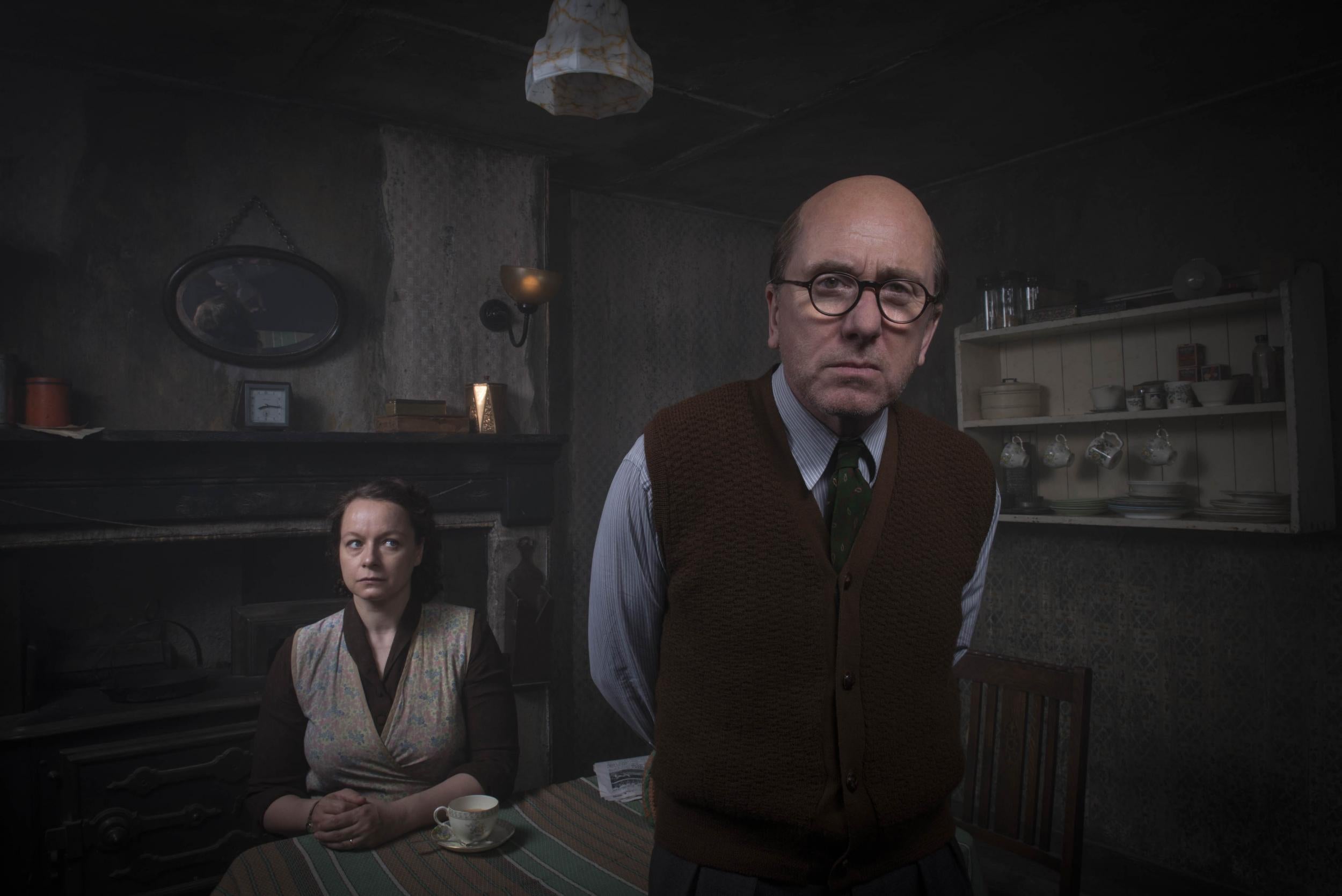TV reviews: The Choir: Gareth's Best in Britain (BBC 2); Rillington Place (BBC 1)
Gareth Malone gets in the way of some fine entertainment

Your support helps us to tell the story
From reproductive rights to climate change to Big Tech, The Independent is on the ground when the story is developing. Whether it's investigating the financials of Elon Musk's pro-Trump PAC or producing our latest documentary, 'The A Word', which shines a light on the American women fighting for reproductive rights, we know how important it is to parse out the facts from the messaging.
At such a critical moment in US history, we need reporters on the ground. Your donation allows us to keep sending journalists to speak to both sides of the story.
The Independent is trusted by Americans across the entire political spectrum. And unlike many other quality news outlets, we choose not to lock Americans out of our reporting and analysis with paywalls. We believe quality journalism should be available to everyone, paid for by those who can afford it.
Your support makes all the difference.I have to say that I have never been attracted by the idea of singing in public, sober or not. At my college the students who were interested in choral expression were so posh that at first I couldn’t quite understand what they were inviting me to join, until someone explained to me that “the kwah” was what us working-class kids would understand to be “the choir”. I didn’t think I’d fit in.
Maybe that has left me with a hole in my cultural life, or just a life-long irrational resentment of giving tongue to some old Handel (don’t titter at the back). If I were more musical than I am, which is to say I could tell a semiquaver from a cheese-and-onion flavoured quaver, then I might be better qualified to comment on the expertise, or otherwise of Gareth Malone, host and mildly megalomaniac presenter of The Choir: Gareth’s Best In Britain. He is very, very annoying, distractingly so, but I find it difficult to identify precisely why. In search of a rationale I did what any modern journalist does and went on Google. Using a Boolean formulation that linked Gareth’s name with some epithets that I cannot repeat, I discovered that I am not alone in this reaction to Gareth, and I was inspired by one suggestion that he be chosen to play Fernando Partridge in a future ground-breaking exploration of the hitherto unseen family life of Alan Gordon Partridge (whose travel journal Nomad is out now, and highly recommended).
Anyway, irritating as Gareth was I found myself with an equal and opposite reaction to the three choirs who are finalists in this slightly pointless national competition (not as pointless as that thing with the cakes, though). Normally an a capella group such as Exeter University’s Semi-Toned would have me reaching for the mute button, and I’ve always wondered what on earth drives people to end up in a Gospel choir, such as the Emmanuel Apostolic Gospel Academy (EAGA) of Leicester. The Bulmershe Ensemble from Reading, like most school choirs, I could take or leave. And yet when they opened their gobs and belted out the variously tricky numbers assigned to them, I warmed to the amateur choristers as groups of people who simply wanted to entertain, and I always have respect for people who want to entertain. Except Gareth, obviously. As I say, I can’t really gainsay the expert judges’ choice of winner, Semi-Toned, but it seemed to me that EAGA had the much better of the contest. Godless as I am, I enjoy a good hymn, and EAGA offered a highly attractive arrangement of the old standard, “Guide me, O Thou Great Redeemer” (you know – “Bread of Heaven” or “Man United We’ll Support You Ever More” – that one). Better than my old college “kwah” ever managed at any rate.

Rillington Place is, well, period macabre crime at its very best. It’s a crowded field, the pantheon of historic British serial killers, but John Reginald Halliday Christie’s career (circa 1940 to 1953) is to me the most chillingly compelling of all, more so than even Jack the Ripper or Fred’n’Rose. Christie’s murders and sexual assaults (in that order usually, I’m afraid) are fairly well known, and the BBC’s three-part series passes the essential test of this type of production, which is that it it remains near-unbearable to watch, despite that familiarity with the story. Like a sort of necro-panto, you want to shout at the television to stop simpleton Timothy Evans, his wife and poor child all falling victim to the highly intelligent and highly manipulative Christie. You are, of course, powerless, being about seventy years too late, but that’s the point – you feel that involved. Much credit goes to Tim Roth’s portrayal of the monster, which almost surpasses that of Richard Attenborough in the 1971 film adaptation of the story. More than anything, the Christie/Evans story remains simultaneously the greatest argument for and against the restoration of the death penalty. Let’s hope that one never makes it to a referendum.
Join our commenting forum
Join thought-provoking conversations, follow other Independent readers and see their replies
Comments